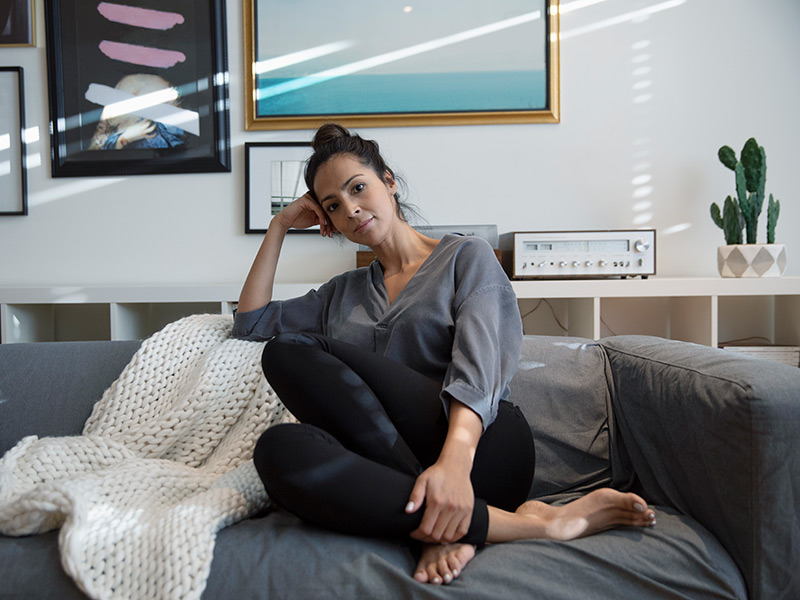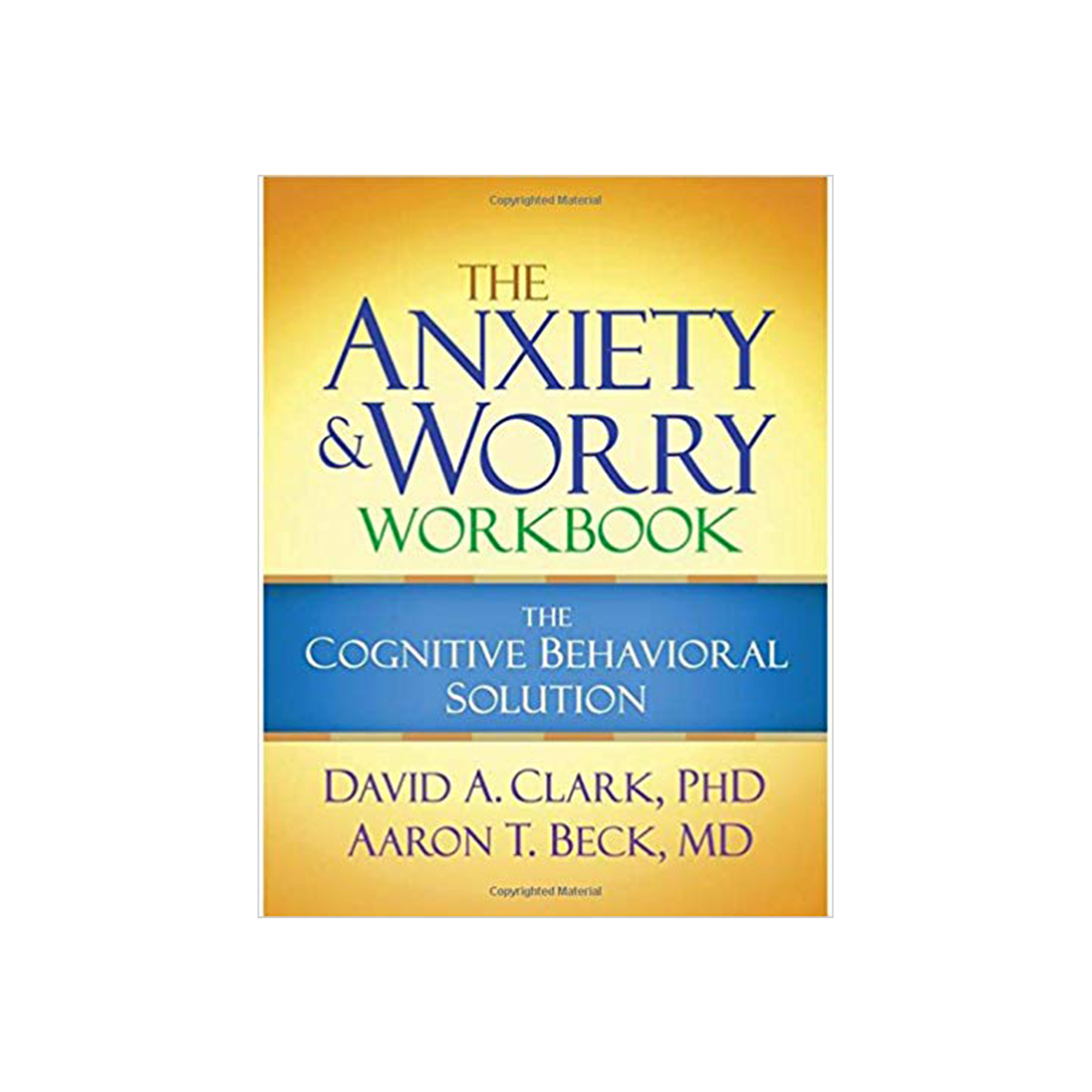We Asked a Therapist Our Burning Mental Health Questions—Here's What She Said

I was only 12 years old when I first started seeing a therapist. My parents were going through a brutal, sticky divorce, and I was having a growth spurt and wondering if I should start shaving my legs. Although I resisted—a lot—my Mom (who would later make a career switch from an assistant to a social worker, might I add) convinced me that talking to someone for an hour each week after school might help my constant mood swings and irritability.
I continued to see several different therapists throughout the years up until a few months ago—and honestly it probably won't be the last time. While I was super skeptical as a kid—and let's be honest, totally embarrassed—in retrospect, therapy was one of the best things I ever did for myself (and probably for the people around me). At the time, there definitely was a stigma surrounding therapy, but it seems society is becoming more transparent and open prioritizing mental health. Between 2009 and 2015, the number of students visiting counseling centers increased by about 30% on average, says one study.
Even so, talking about mental health is not easy. It's personal, uncomfortable, and can be pretty awkward (especially when it comes to dealing with it in the workplace). That's why when licensed therapist Sheina Schochet, LMHC, offered to answer some of our community's most pressing mental health questions, we gladly accepted. You should definitely get help IRL if you need it, but keep scrolling for answers to some of the most common mental health questions in our Q&A with Schochet.
How do I know that I should go see a therapist? At which point do most patients decide?

First of all, I have a thing about the word "should,” in that I really don’t like it! "Stop shoulding yourself!” is my favorite phrase I picked up in grad school. I like to view things in terms of want and consequences. "Do I want it?” "Am I okay with dealing with the potential consequences?” (You can also incorporate the word "need”—do I need it?) If I want it, and I’m okay with any consequences, I’m going for it.
People go to therapy for all different reasons. Some clients come looking to grow. Some come to deal with a specific life situation. Some come when they’re at a breaking point, but I don’t think any time is a wrong time to come. And while not everyone absolutely "needs” therapy, everyone can benefit from it. If you’re asking if you should go, it’s likely you have something going on that could benefit from therapy. It doesn’t hurt to reach out to a therapist for a free initial consult and see if you feel it’s a fit.
How does a therapist know what to focus on with a new patient that suffers from anxiety?

In the initial session, I ask the client to tell me what anxiety looks like for them. What situations trigger it, what thoughts and feelings they experience when triggered, etc. Some patients are triggered by social situations, some by health worries, some by fear of failure, some get triggered by everything and anything, and the list goes on. Working with the individual to understand their experience of anxiety helps me choose the focus and what exercises we will work on.
Will my anxiety ever truly get better?

In short, it can. Treatment depends on how severe your anxiety is and what kind of anxiety you have. Sometimes therapy is enough. Sometimes you also need medication. But if you do the work, you can and will likely get better. Keywords: Do the work. It only works if you work it!
Should you only consider therapy if you are feeling depressed?

Therapy is beneficial for so many reasons! It is definitely not only for depression. My clientele is millennial women looking to work on dating, relationships, and/or body image. Sure, depressive symptoms can come up, but they’re not part of my advertised services, as that’s not my focus. (If a client struggling primarily with depression reaches out and seems like a great fit, I will work with them, but it’s not what I focus my outreach on.) There are therapists who work with so many things other than depression.
Once diagnosed with anxiety and depression, will you always be prone to it and need medication for life?

The answer to this question will really vary from person to person. In short, it brings up the nature-versus-nurture debate. The common belief now is that "nature loads the gun, environment pulls the trigger."
If you did have depression and anxiety, it’s possible that you are more prone to it if you are triggered than someone who has not been affected in that way. But through therapy you can learn a lot of useful tools and strategies for coping with situations so that your anxiety/depression does not get triggered, and in many cases, if you are consistent with using those and your body does not require medication, then you will not need to take it forever.
Some people biologically need medication to function at a place that feels comfortable for them, and that is 100% okay and recommended if it is the case. [To modify a line from Ina Garten,] "If your body doesn’t make enough serotonin, store-bought is great too!”
How do I stop repeating negative patterns of behavior that lead to lows?

The first step for this is awareness, and if you’re asking this you likely have the beginning of awareness. Further awareness would be to notice what negative patterns keep occurring and try to see what triggers these behaviors. Once you know what situations, people, places, things, etc., trigger your negative behavior patterns, you can learn new ways to respond to the triggers or learn how to avoid certain situations (avoidance is not always the answer—in cases like anxiety, avoidance can actually worsen things!). Keeping a journal can help with awareness, and going to therapy can help as well.
What are some tips for letting go of the past?

A lot of times when we try to get over the past, we try to bury it and just move on, but this is more similar to denial. If you don’t deal with the situation properly, it can manifest as something much bigger and harder to deal with later on. You gotta deal to heal.
Some ways to work through it are
- Journal (clearly I’m a fan! I suggest it to clients all the time!).
- Try to reframe the situation—think about what you learned from it and how it may have changed you for the better or helped you grow (maybe it helped you get clearer on boundaries and respect yourself more?).
- Be honest about the feelings and thoughts associated with the situation, honor them, and then peacefully lay them to rest.
- Talk through the situation with a therapist.
What’s the best way to support a significant other who is dealing with severe depression?

Put simply, be there. Don’t judge, don’t pressure, and don’t try to give well-meaning suggestions all the time. Your loved one is struggling. Let them know you are there for them and love them unconditionally and that you will do your best to support them as best as you can.
Next up: 4 Women on What They Learned From Going to Therapy
This article is provided for informational purposes only and is not intended to be used in the place of advice of your physician or other medical professionals. You should always consult with your doctor or healthcare provider first with any health-related questions.

